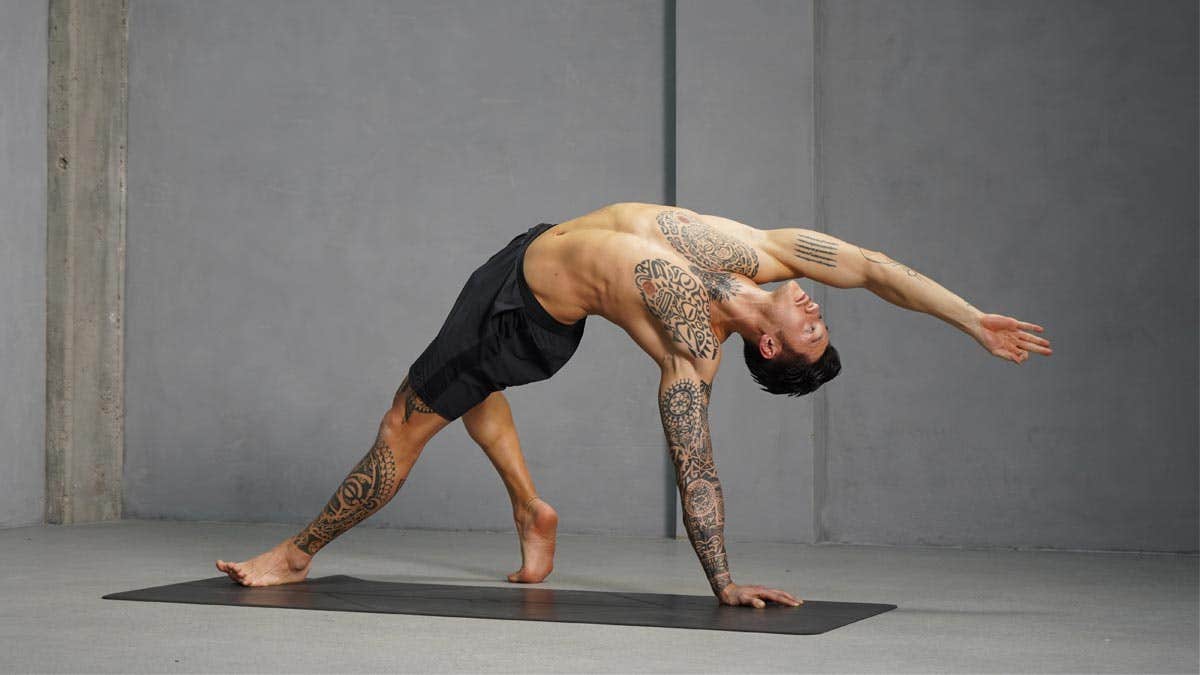Flexibility and range of motion plays a significant role in life expectancy
New research reveals that body flexibility, measured by the Flexindex score, may play a significant role in longevity, particularly for middle-aged adults.

The study found a clear link between flexibility and mortality. (CREDIT: Skill Yoga)
Flexibility exercises are commonly included in the workout routines of both athletes and regular exercisers. Recent research published in the Scandinavian Journal of Medicine & Science in Sports now suggests that flexibility may also play a significant role in longevity, especially for middle-aged adults.
The study analyzed data from 3,139 individuals, mostly men (66%), between the ages of 46 and 65. Researchers measured each participant’s flexibility using a scoring system called the Flexindex.
This score was calculated by assessing the passive range of motion in 20 different movements across seven joints, with each movement scored on a scale of 0 to 4. The overall Flexindex score could range from 0 to 80.
On average, women had a Flexindex score that was 35% higher than men’s. Over an average follow-up period of nearly 13 years, 302 of the participants passed away. Of those, 224 were men and 78 were women, representing 9.6% of the total study group.
The study found a clear link between flexibility and mortality. Flexindex was about 10% higher in survivors than in those who had passed away, across both genders.
Once the researchers accounted for factors like age, body mass index (BMI), and overall health, they discovered that individuals with lower Flexindex scores had a significantly higher risk of death.
Related Stories
Specifically, men with a low Flexindex were 1.87 times more likely to die during the study period, while women with poor flexibility had a 4.78-times higher risk, compared to those with higher Flexindex scores.
Lead author Claudio Gil S. Araújo, MD, PhD, from the Exercise Medicine Clinic – CLINIMEX in Rio de Janeiro, Brazil, noted the importance of flexibility as a key component of health. "Being aerobically fit and strong and having good balance have been previously associated with low mortality," Dr. Araújo explained. "We were able to show that reduced body flexibility is also related to poor survival in middle-aged men and women."
He emphasized that flexibility naturally declines with age, but this doesn’t mean it should be neglected. Dr. Araújo recommended incorporating flexibility exercises more consistently into fitness routines, especially as part of health-related physical fitness assessments. This could be a crucial factor in maintaining overall health and longevity as people grow older.
The findings shed light on how flexibility, often overshadowed by strength and cardio fitness, can be an important predictor of long-term health. For those approaching or in middle age, making flexibility a priority could potentially extend life and improve overall well-being.
Increased flexibility offers a host of benefits for people of all ages, enhancing both physical and mental well-being. One of the most immediate advantages is an improved range of motion, allowing joints and muscles to move more freely with less effort. This expanded mobility makes everyday tasks, such as bending, lifting, and reaching, easier and more efficient, while also improving athletic performance.
Furthermore, the ability to move without restriction helps reduce the risk of injuries, particularly for those engaged in physical activities. Flexible muscles and joints are less prone to strains, sprains, and other common injuries, offering greater protection and stability.
Flexibility also plays a crucial role in improving posture and reducing muscle tension. By balancing the muscles around the spine and joints, individuals can maintain proper alignment, which helps alleviate back and neck pain while preventing long-term wear and tear on the body.
Additionally, regular stretching increases blood flow to muscles, promoting better circulation and speeding up muscle recovery. This improved circulation is not only beneficial for physical healing but also helps reduce post-exercise soreness.
As people age, maintaining flexibility can have profound effects on quality of life. Flexibility exercises counteract the natural stiffness that comes with aging, enabling individuals to stay more active and independent for longer. This enhanced mobility not only reduces the risk of injury but also contributes to a more graceful and fulfilling aging process.
Overall, incorporating flexibility training into a fitness routine offers both immediate and long-term benefits for health, performance, and well-being.
Note: Materials provided above by The Brighter Side of News. Content may be edited for style and length.
Like these kind of feel good stories? Get The Brighter Side of News' newsletter.
Joshua Shavit
Science & Technology Writer | AI and Robotics Reporter
Joshua Shavit is a Los Angeles-based science and technology writer with a passion for exploring the breakthroughs shaping the future. As a contributor to The Brighter Side of News, he focuses on positive and transformative advancements in AI, technology, physics, engineering, robotics and space science. Joshua is currently working towards a Bachelor of Science in Business Administration at the University of California, Berkeley. He combines his academic background with a talent for storytelling, making complex scientific discoveries engaging and accessible. His work highlights the innovators behind the ideas, bringing readers closer to the people driving progress.



